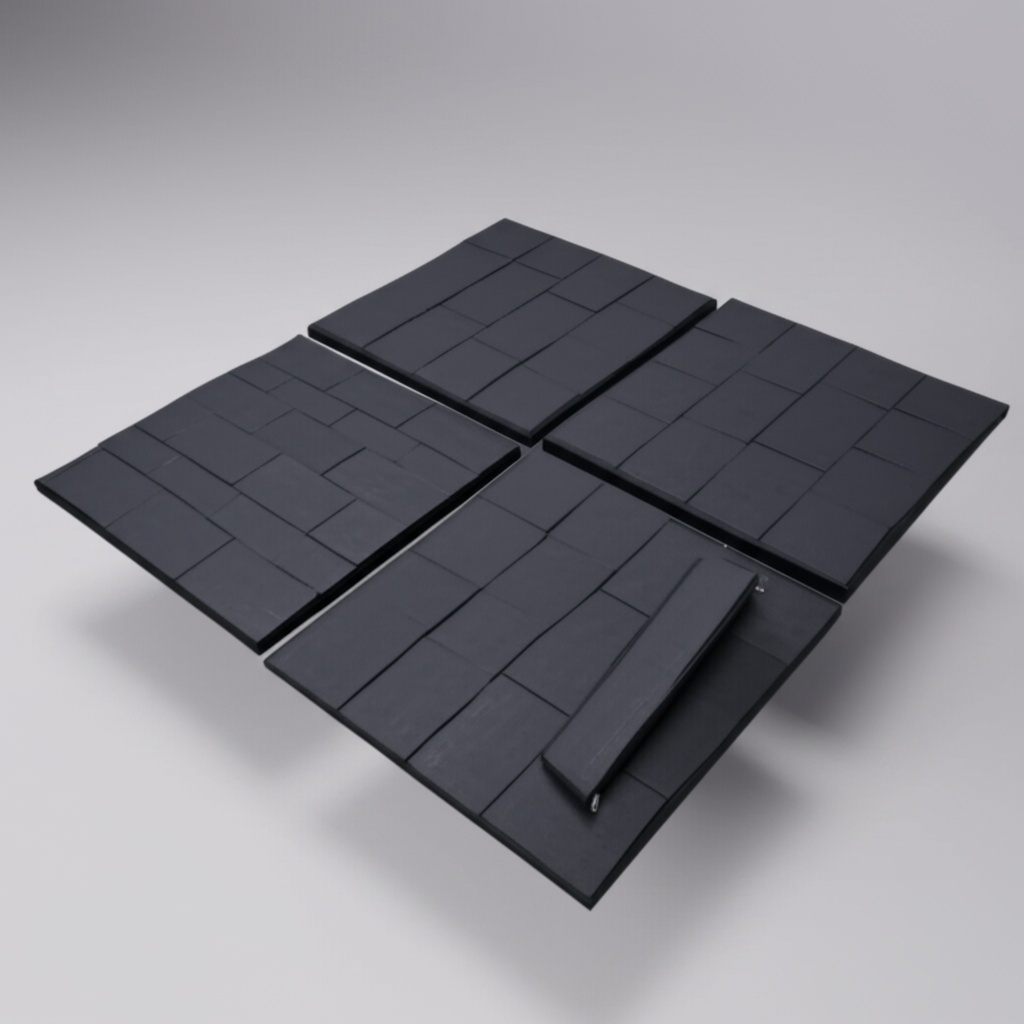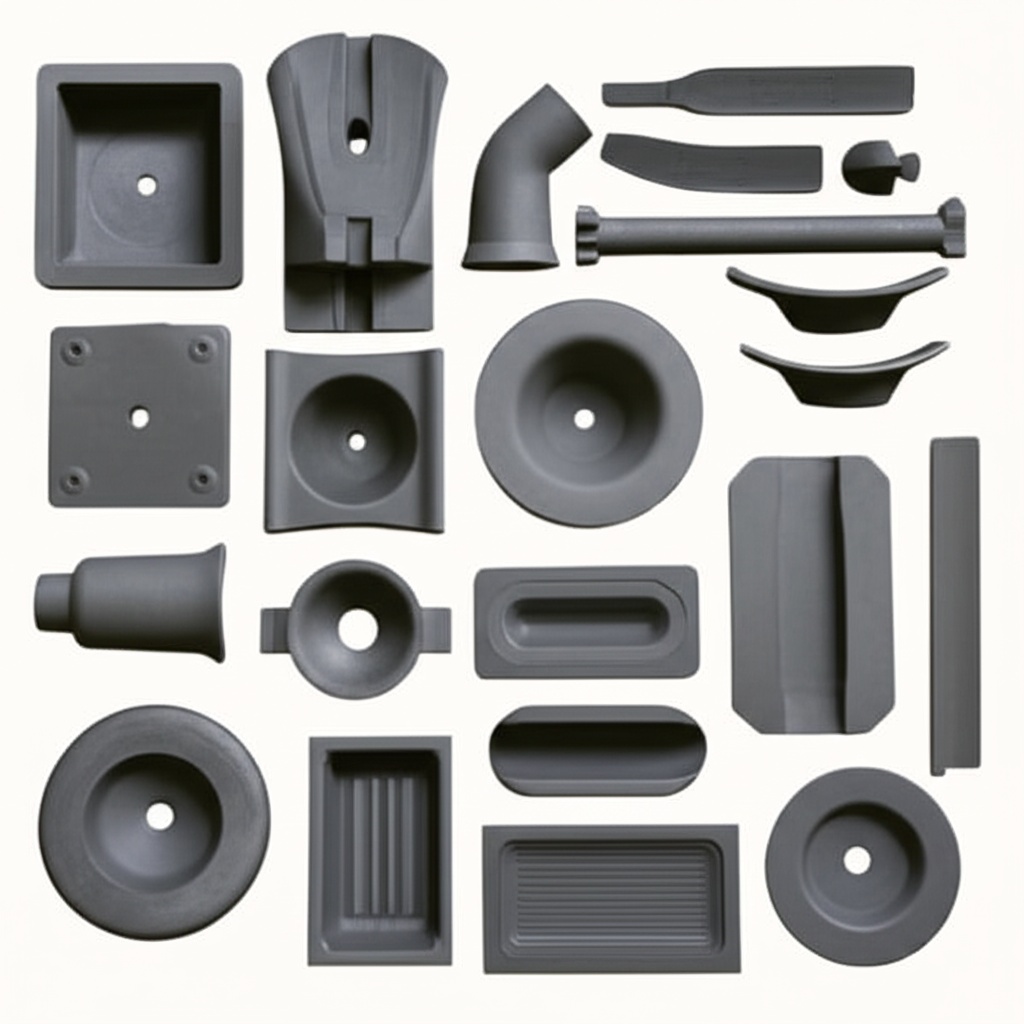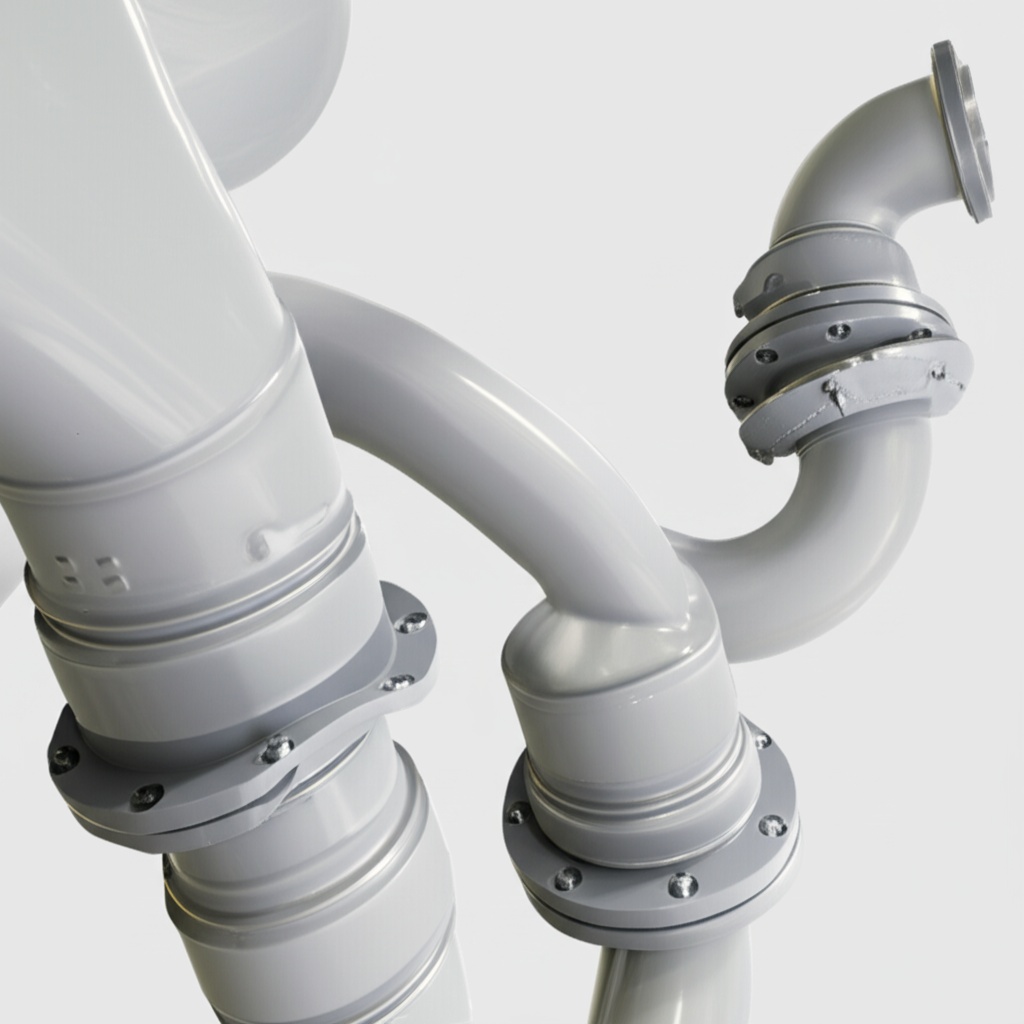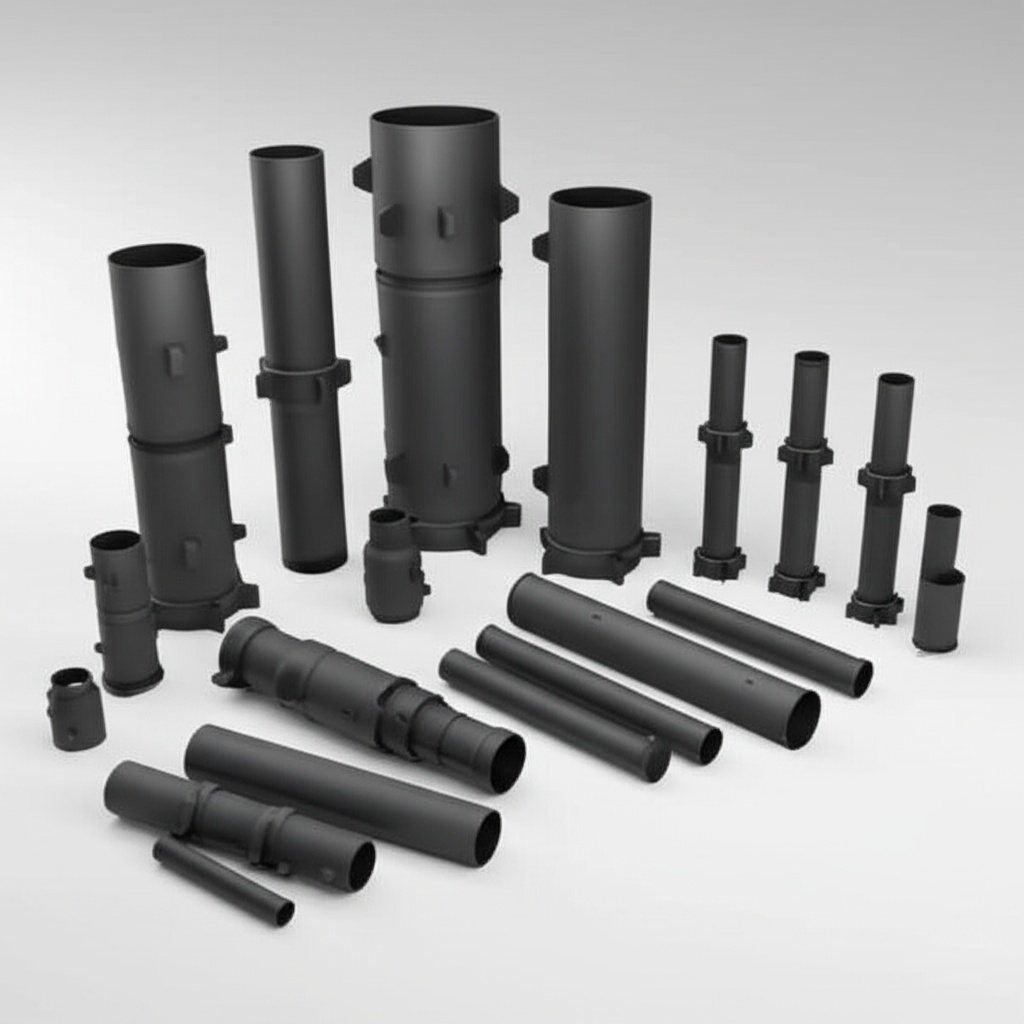Chile’s SiC Market: Potential & Key Players

Share
Chile’s SiC Market: Potential & Key Players
In the rapidly evolving landscape of advanced materials, Silicon Carbide (SiC) stands out as a foundational element for high-performance applications across numerous critical industries. From enhancing the efficiency of electric vehicles to boosting the resilience of aerospace components, custom silicon carbide products are proving indispensable. This blog post delves into the burgeoning potential of Chile’s SiC market, examining the key players, the diverse applications, and the strategic advantages of leveraging custom SiC solutions for your demanding industrial needs. We will also introduce a key partner in this journey, Sicarb Tech, a company at the forefront of SiC innovation and manufacturing excellence.
What are Custom Silicon Carbide Products?
Custom silicon carbide products are engineered ceramic components specifically designed and manufactured to meet precise application requirements. Unlike off-the-shelf solutions, these custom SiC solutions offer unparalleled performance, tailored to withstand extreme conditions where traditional materials fail. SiC, a compound of silicon and carbon, boasts an impressive array of properties, including exceptional hardness, superior thermal conductivity, high-temperature stability, excellent wear resistance, and chemical inertness. These characteristics make it ideal for demanding industrial applications.
For procurement managers, engineers, and technical buyers in sectors like semiconductors, aerospace, and energy, understanding the nuances of custom SiC is crucial. It’s not just about material selection; it’s about optimizing design, material composition, and manufacturing processes to achieve peak performance and extend the lifespan of critical components.
Main Applications for Silicon Carbide
The versatility of silicon carbide drives its adoption across a wide spectrum of industries. Its unique properties address critical challenges, leading to enhanced efficiency, durability, and reliability. Below are some of the key sectors benefiting from SiC technology:
Semiconductor Manufacturing
- Wafer Processing Equipment: SiC components are vital for high-temperature and corrosive environments in semiconductor fabrication, including susceptors, pedestals, and furnace parts, ensuring precise temperature control and purity.
- Power Devices: SiC power semiconductors offer superior performance over silicon, enabling higher power density, faster switching speeds, and reduced energy losses in applications like power converters and inverters.
Automotive Industry
- Electric Vehicles (EVs): SiC inverters and on-board chargers significantly improve EV efficiency, extending range and reducing charging times due to their high power density and thermal performance.
- Brake Discs: SiC-ceramic brake discs provide exceptional wear resistance, heat dissipation, and lighter weight, enhancing performance and safety in high-performance vehicles.
Aerospace & Defense
- High-Temperature Components: For jet engines, missile systems, and rocket nozzles, SiC’s thermal shock resistance and high strength-to-weight ratio are invaluable for components exposed to extreme temperatures.
- Lightweight Structures: SiC composites offer structural integrity with reduced weight, crucial for fuel efficiency and payload capacity in aerospace applications.
Power Electronics & Renewable Energy
- Solar Inverters: SiC-based inverters improve the efficiency of solar power conversion, maximizing energy harvest from photovoltaic systems.
- Wind Turbines: Used in power converters and control systems to handle high power demands and improve overall system reliability.
- Grid Infrastructure: Enhancing the efficiency and reliability of power transmission and distribution systems.
Metallurgy & Industrial Manufacturing
- Furnace Components: SiC’s high thermal conductivity and resistance to thermal shock make it ideal for furnace linings, radiant tubes, and kiln furniture in high-temperature industrial furnaces.
- Wear Parts: In pumps, nozzles, and mechanical seals, SiC provides exceptional abrasion and corrosion resistance, extending operational life.
Chemical Processing & Medical Devices
- Corrosion-Resistant Components: SiC is used in pumps, valves, and heat exchangers for handling aggressive chemicals due to its chemical inertness.
- Biomedical Implants: Research is exploring SiC for certain medical device components due to its biocompatibility and durability.
Why Choose Custom Silicon Carbide?
The decision to opt for custom silicon carbide over standard materials is driven by a need for optimized performance in challenging environments. Here are the core advantages:
- Tailored Performance: Custom SiC allows for precise control over material properties, enabling engineers to fine-tune thermal conductivity, electrical resistivity, mechanical strength, and chemical resistance to specific application demands.
- Thermal Resistance: SiC maintains its strength and stability at extremely high temperatures (up to 1600°C), making it ideal for furnace components, heat exchangers, and high-temperature sensors.
- Exceptional Wear Resistance: Its extreme hardness (Mohs 9-9.5) provides unparalleled resistance to abrasion and erosion, significantly extending the lifespan of components in harsh environments.
- Chemical Inertness: SiC is highly resistant to most acids, alkalis, and corrosive gases, making it suitable for chemical processing equipment and other challenging chemical environments.
- High Strength and Stiffness: Offers excellent mechanical properties, allowing for the design of lightweight yet robust components.
- Thermal Shock Resistance: Withstands rapid temperature changes without cracking, a critical property for components in thermal cycling applications.
- Electrical Properties: Can be engineered to be electrically insulating or semiconducting, depending on the application, from high-voltage insulators to semiconductor substrates.
Recommended SiC Grades and Compositions
Understanding the different grades of SiC is crucial for selecting the right material for your custom application. Each type offers a unique balance of properties:
| SiC Grade | Description | Key Properties | Typical Applications |
|---|---|---|---|
| Reaction-Bonded SiC (RBSiC) | Porous SiC infiltrated with molten silicon, forming a dense, composite material. | Good strength, high thermal conductivity, excellent thermal shock resistance, fine grain structure. | Kiln furniture, mechanical seals, heat exchangers, semiconductor process equipment. |
| Sintered SiC (SSiC) | Pure SiC powder sintered at high temperatures without a binder, resulting in a dense, fine-grained material. | High purity, superior strength and hardness, excellent chemical resistance, high thermal conductivity. | Mechanical seals, pump components, nozzles, high-temperature bearings, armor. |
| Nitride-Bonded SiC (NBSiC) | SiC grains bonded with silicon nitride, forming a strong and durable structure. | Good strength, thermal shock resistance, and oxidation resistance. | Burner nozzles, kiln furniture, wear plates. |
| Recrystallized SiC (ReSiC) | Porous SiC formed by heating SiC grains to high temperatures, allowing them to bond. | High purity, excellent thermal shock resistance, lower density than dense SiC. | Kiln furniture, furnace components. |
| Liquid Phase Sintered SiC (LPSiC) | SiC with sintering additives that form a liquid phase at high temperatures, aiding densification. | High density, excellent mechanical properties, good fracture toughness. | High-performance mechanical seals, pump impellers. |
Design Considerations for SiC Products
Designing with silicon carbide requires careful attention to its unique material properties, particularly its hardness and brittleness. Effective design minimizes stress concentrations and facilitates manufacturability.
- Geometry Limits: Avoid sharp corners, thin walls, and abrupt changes in cross-section. Large radii and gradual transitions are preferred to reduce stress points.
- Wall Thickness: Uniform wall thickness is ideal for consistent thermal expansion and contraction, minimizing the risk of warping or cracking during processing.
- Stress Points: Identify and mitigate potential stress concentrations, especially in areas subject to thermal or mechanical loading. Finite Element Analysis (FEA) is often employed for complex designs.
- Machinability: While SiC is extremely hard, it can be machined using diamond tools. Design for features that are feasible with such tooling, considering the cost implications of complex geometries.
- Tolerances: Discuss achievable tolerances early in the design phase with your supplier. While tight tolerances are possible, they often increase manufacturing complexity and cost.
Tolerance, Surface Finish & Dimensional Accuracy
Achieving precise tolerances and optimal surface finishes is critical for the performance of custom SiC components, especially in applications requiring sealing, smooth fluid flow, or minimal friction.
- Achievable Tolerances: Precision grinding and lapping techniques allow for tight dimensional tolerances, often in the micron range, depending on part size and complexity.
- Surface Finish Options:
- As-fired/Sintered: Rougher finish, suitable for non-critical surfaces.
- Ground: Provides a smoother surface with improved dimensional accuracy.
- Lapped/Polished: Achieves very fine surface finishes (Ra values typically below 0.1 µm), essential for sealing surfaces, bearing surfaces, and optical applications.
- Dimensional Accuracy: Consistency in manufacturing processes is key to ensuring repeatable dimensional accuracy across production batches. Your supplier’s quality control systems are paramount here.
Post-Processing Needs
Beyond initial forming and firing, custom SiC components often undergo post-processing steps to enhance their performance, durability, or integrate them into larger systems.
- Grinding and Lapping: Essential for achieving tight tolerances and specific surface finishes on critical dimensions.
- Sealing: For porous SiC grades, impregnation with resins or other materials can improve gas tightness and chemical resistance.
- Coating: Application of specialized coatings (e.g., SiC, Pyrolytic Carbon) can enhance surface properties, provide additional corrosion resistance, or modify electrical characteristics.
- Brazing/Joining: SiC components can be joined to other ceramics or metals using advanced brazing techniques, forming complex assemblies.
- Inspection: Non-destructive testing (NDT) methods such as ultrasonic inspection, X-ray, and dye penetrant inspection are used to ensure material integrity and detect internal flaws.
Common Challenges and How to Overcome Them
While SiC offers remarkable advantages, working with it presents certain challenges that experienced manufacturers can effectively mitigate.
- Brittleness: SiC, like other advanced ceramics, is inherently brittle. Design solutions should avoid tensile stress concentrations and incorporate features that distribute loads effectively. Proper handling during manufacturing and assembly is also crucial.
- Machining Complexity: Its extreme hardness makes SiC difficult and costly to machine. Collaboration with a supplier possessing specialized diamond tooling and advanced machining capabilities is vital. Design for manufacturability (DFM) principles can significantly reduce machining complexity and cost.
- Thermal Shock Sensitivity (in certain applications): While generally good, extreme thermal gradients can still pose a risk. Material selection (e.g., RBSiC often has better thermal shock resistance) and design considerations can minimize this.
- Cost: Custom SiC components can be more expensive than traditional materials due to raw material costs and specialized manufacturing processes. However, their extended lifespan and superior performance often result in a lower total cost of ownership (TCO) in demanding applications.
- Quality Control: Ensuring consistent quality and detecting internal defects requires sophisticated inspection techniques. Partnering with a supplier with robust quality assurance protocols and advanced NDT capabilities is essential.
How to Choose the Right SiC Supplier
Selecting a reliable supplier for custom silicon carbide products is a critical decision that impacts project success, quality, and cost-effectiveness. Here are key factors to consider:
- Technical Capabilities & Expertise: Look for a supplier with deep knowledge of SiC material science, design for manufacturing, and advanced processing techniques. They should be able to offer guidance on material selection and design optimization.
- Material Options: A diverse portfolio of SiC grades (SSiC, RBSiC, etc.) allows for tailored solutions to specific application requirements.
- Quality Certifications: Ensure the supplier adheres to international quality standards (e.g., ISO 9001). This demonstrates a commitment to consistent quality and process control.
- Manufacturing Capacity: Assess their ability to meet your volume requirements, from prototyping to mass production, with reliable lead times.
- Customization Support: A strong supplier offers comprehensive support throughout the design and manufacturing process, including technical consultation, CAD/CAM capabilities, and prototyping services. For comprehensive customizing support, explore their services.
- Customer References & Case Studies: Review their track record and successful projects in your industry or similar applications.
- Geographic Reach & Logistics: Consider their ability to efficiently ship products to your location, including Chile, and provide necessary logistical support.
Speaking of reliable suppliers, it’s important to recognize the global leaders in SiC manufacturing. It’s well-known that the hub of China’s silicon carbide customizable parts manufacturing is situated in Weifang City of China. This region has become home to over 40 silicon carbide production enterprises of various sizes, collectively accounting for more than 80% of the nation’s total silicon carbide output.
In this flourishing ecosystem, Sicarb Tech stands out. We have been instrumental in introducing and implementing silicon carbide production technology since 2015, assisting local enterprises in achieving large-scale production and technological advancements in product processes. We have been a witness to the emergence and ongoing development of the local silicon carbide industry.
Sicarb Tech is an entrepreneurial park that collaborates closely with the National Technology Transfer Center of the Chinese Academy of Sciences. It serves as a national-level innovation and entrepreneurship service platform, integrating innovation, entrepreneurship, technology transfer, venture capital, incubation, acceleration, and scientific and technological services. Capitalizing on the robust scientific, technological capabilities and talent pool of the Chinese Academy of Sciences , and backed by the Chinese Academy of Sciences National Technology Transfer Center, we serve as a bridge, facilitating the integration and collaboration of crucial elements in the transfer and commercialization of scientific and technological achievements. Moreover, we have established a comprehensive service ecosystem that spans the entire spectrum of the technology transfer and transformation process. This translates to more reliable quality and supply assurance within China.
Sicarb Tech possesses a domestic top-tier professional team specializing in customized production of silicon carbide products. Under our support, over 512 local enterprises have benefited from our technologies. We possess a wide array of technologies, such as material, process, design, measurement & evaluation technologies, along with the integrated process from materials to products. This enables us to meet diverse customization needs and offer you higher-quality, cost-competitive customized silicon carbide components in China.
Furthermore, we are committed to assisting you in establishing a specialized factory. If you need to build a professional silicon carbide products manufacturing plant in your country, Sicarb Tech can provide you with the technology transfer for professional silicon carbide production, along with a full range of services (turnkey project) including factory design, procurement of specialized equipment, installation and commissioning, and trial production. This enables you to own a professional silicon carbide products manufacturing plant while ensuring a more effective investment, reliable technology transformation, and guaranteed input-output ratio.
Cost Drivers and Lead Time Considerations
Understanding the factors influencing cost and lead time is essential for effective project planning and procurement.
Cost Drivers:
- Material Grade and Purity: Higher purity and specialized SiC grades typically cost more due to raw material processing and tighter manufacturing controls.
- Design Complexity: Intricate geometries, tight tolerances, and small features increase machining time and tooling costs.
- Volume: Economies of scale generally apply, with higher volumes leading to lower per-unit costs.
- Surface Finish Requirements: Lapping and polishing add significant cost due to the specialized equipment and labor involved.
- Post-Processing: Additional steps like coatings or specialized joining techniques contribute to the overall cost.
- Inspection and Quality Control: Rigorous testing and certification requirements can add to the expense.
Lead Time Considerations:
- Raw Material Availability: The lead time for specialized SiC powders can vary.
- Manufacturing Process: Each SiC grade has a specific manufacturing cycle, including forming, sintering/reaction bonding, and cooling.
- Machining and Finishing: Complex machining and fine finishing processes are time-consuming.
- Order Volume and Production Schedule: Large orders or a busy production schedule can extend lead times.
- Shipping and Logistics: International shipping to countries like Chile requires careful planning.
- Prototyping vs. Production: Prototypes often have shorter lead times but are more expensive per unit.
Frequently Asked Questions (FAQ)
Here are some common questions regarding custom silicon carbide products:
Q1: What are the primary advantages of SiC over other advanced ceramics like alumina or zirconia?
A1: SiC generally offers superior thermal conductivity, higher temperature stability, and better chemical inertness compared to alumina or zirconia, making it ideal for extremely harsh environments. While alumina and zirconia excel in certain mechanical properties, SiC’s overall balance of high performance is unique.
Q2: Is silicon carbide electrically conductive?
A2: SiC can be engineered to be either an electrical insulator or a semiconductor. High-purity SiC is an excellent insulator, while doping allows it to function as a semiconductor, crucial for power electronics applications.
Q3: How durable are custom SiC components in abrasive environments?
A3: Custom SiC components are exceptionally durable in abrasive environments due to SiC’s extreme hardness (Mohs 9-9.5). This makes them ideal for wear parts such as nozzles, seals, and pump components, significantly extending their operational lifespan compared to metals or less robust ceramics. This superior wear resistance leads to reduced maintenance and replacement costs.
Q4: Can SiC components be repaired or refurbished?
A4: Due to SiC’s hardness and material properties, traditional repair methods are often challenging. However, certain surface defects might be addressed through re-grinding or polishing, depending on the severity and component function. Often, replacement is the more common approach for significant damage.
Q5: What information do I need to provide for a custom SiC quote?
A5: To receive an accurate quote, you should provide detailed engineering drawings (CAD preferred), material specifications (if known), application details, operating conditions (temperature, pressure, chemical exposure), required tolerances, surface finish requirements, and estimated annual volume. The more information you can provide, the more precise the quote will be. Don’t hesitate to contact us for detailed consultation.
Conclusion
The potential of Silicon Carbide in Chile’s industrial landscape, and indeed globally, is undeniable. For semiconductor manufacturers, automotive companies, aerospace innovators, and players in power electronics, renewable energy, and beyond, custom silicon carbide products offer a compelling pathway to enhanced performance, durability, and efficiency. By leveraging the unique properties of SiC, businesses can overcome demanding operational challenges and drive innovation in their respective fields.
Choosing the right partner for your custom SiC needs is paramount. With companies like Sicarb Tech, you gain access to not only cutting-edge manufacturing capabilities and a diverse range of SiC grades but also invaluable technical expertise and a commitment to quality that stems from a deep understanding of the industry. Their proven track record and comprehensive support, including the potential for technology transfer, position them as a trusted ally for any enterprise seeking to harness the full potential of custom silicon carbide.

About the Author: Sicarb Tech
We provide clear and reliable insights into silicon carbide materials, component manufacturing, application technologies, and global market trends. Our content reflects industry expertise, practical experience, and a commitment to helping readers understand the evolving SiC landscape.




